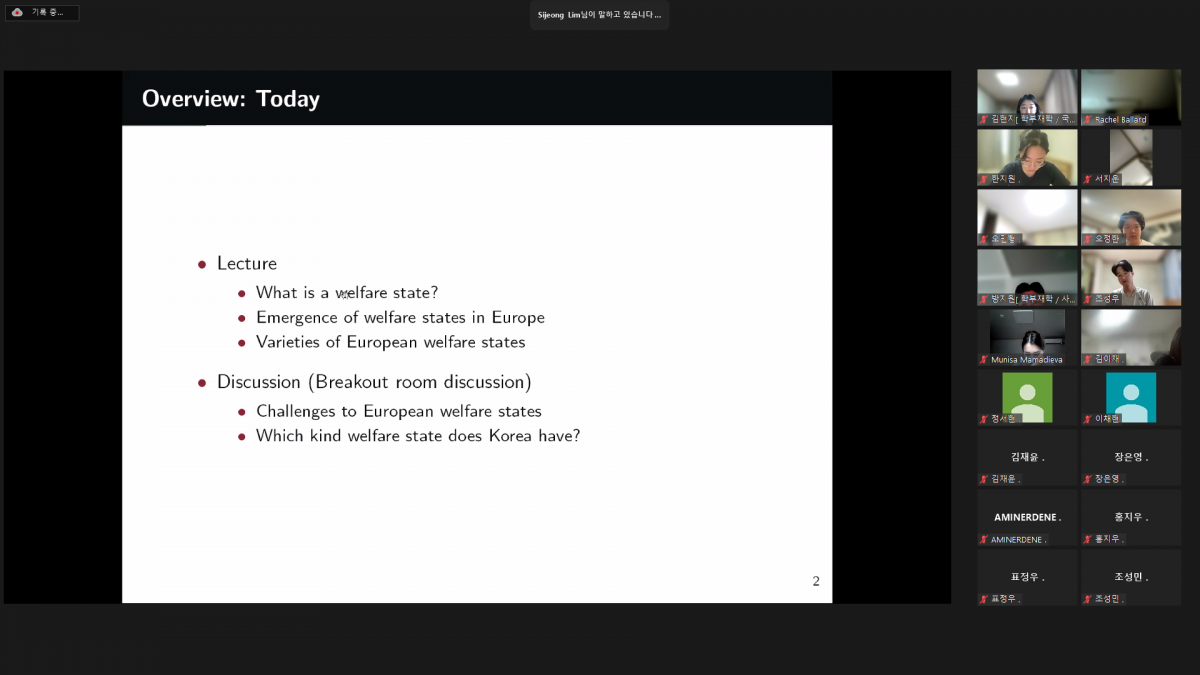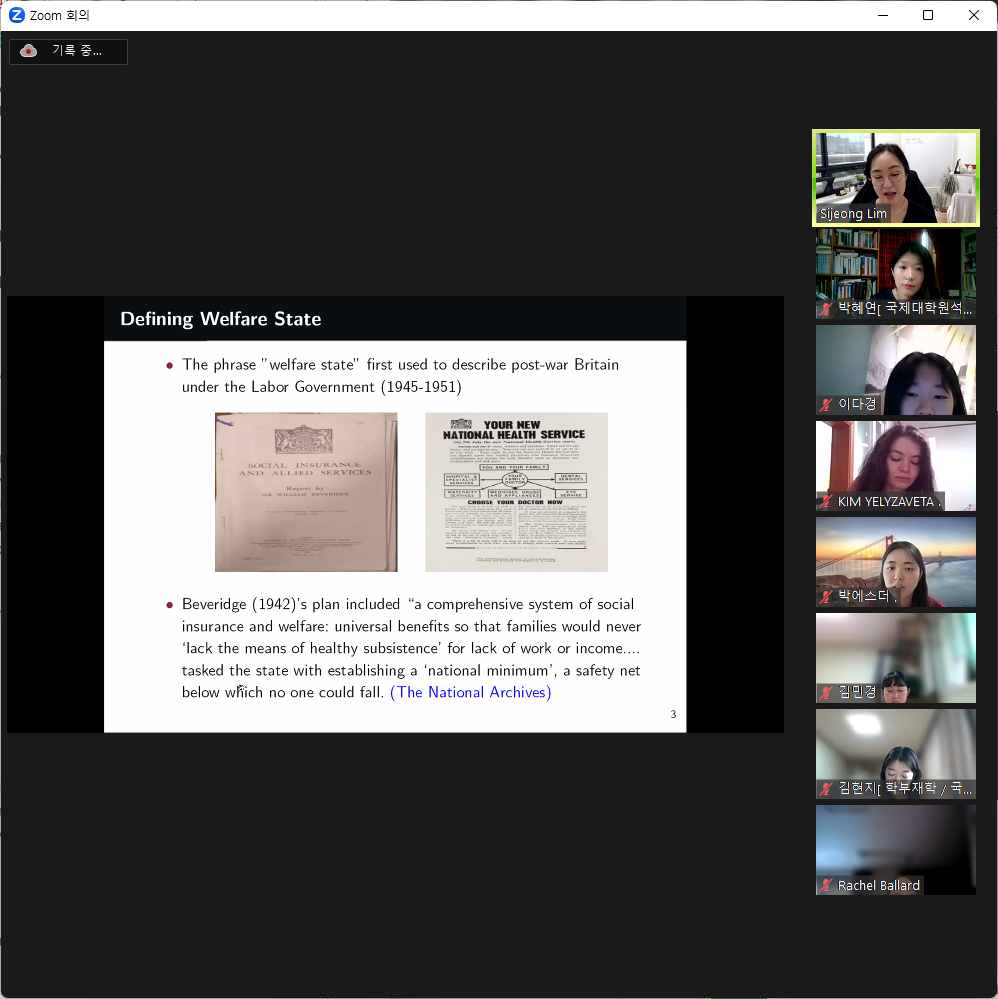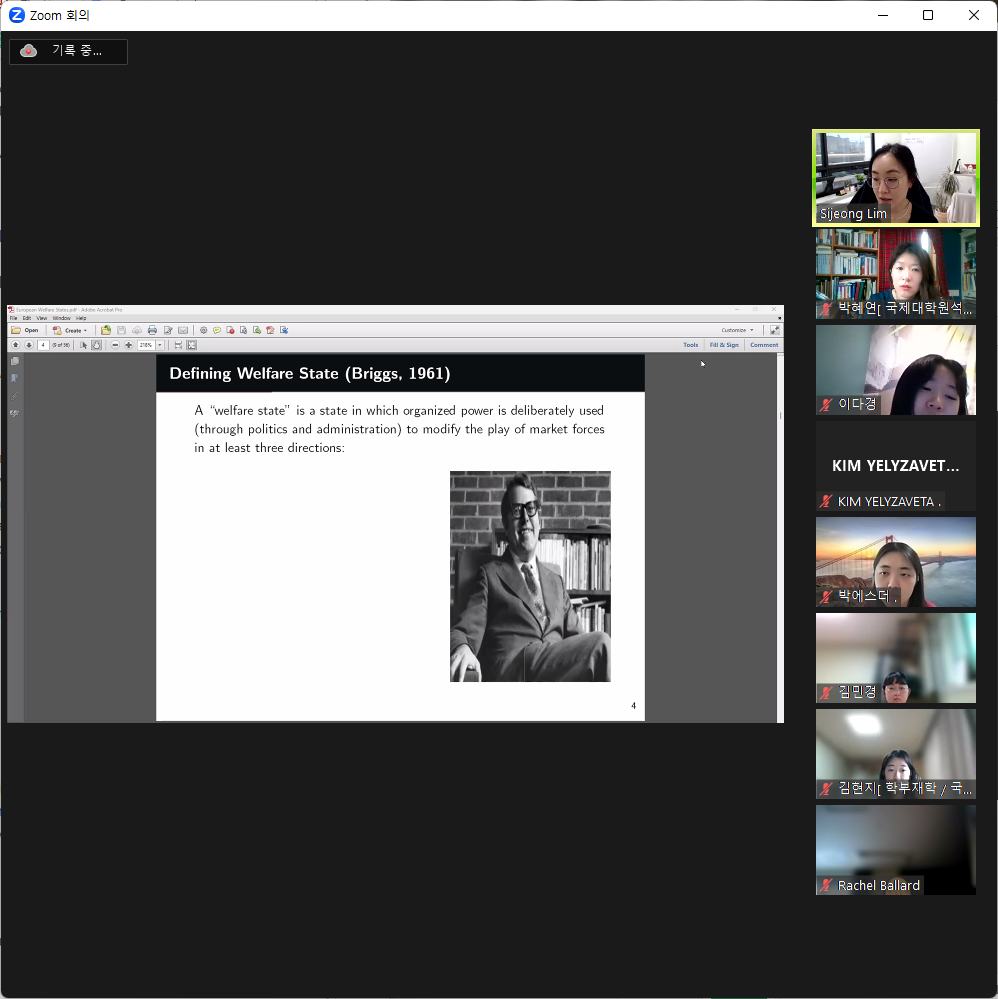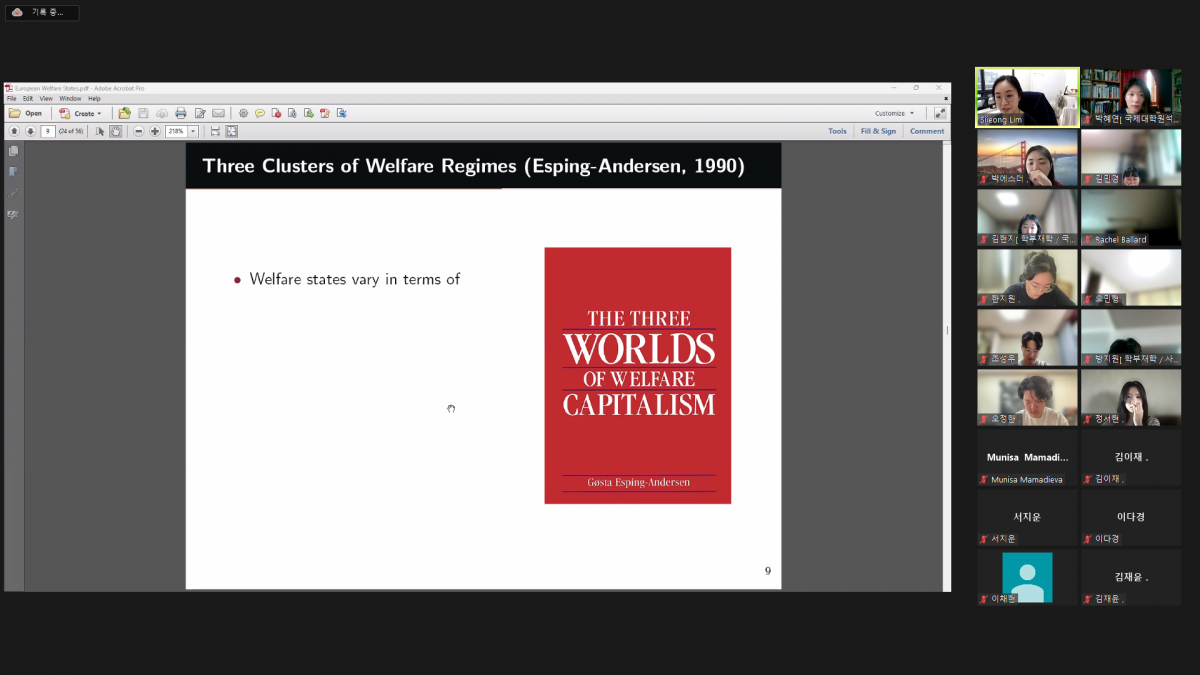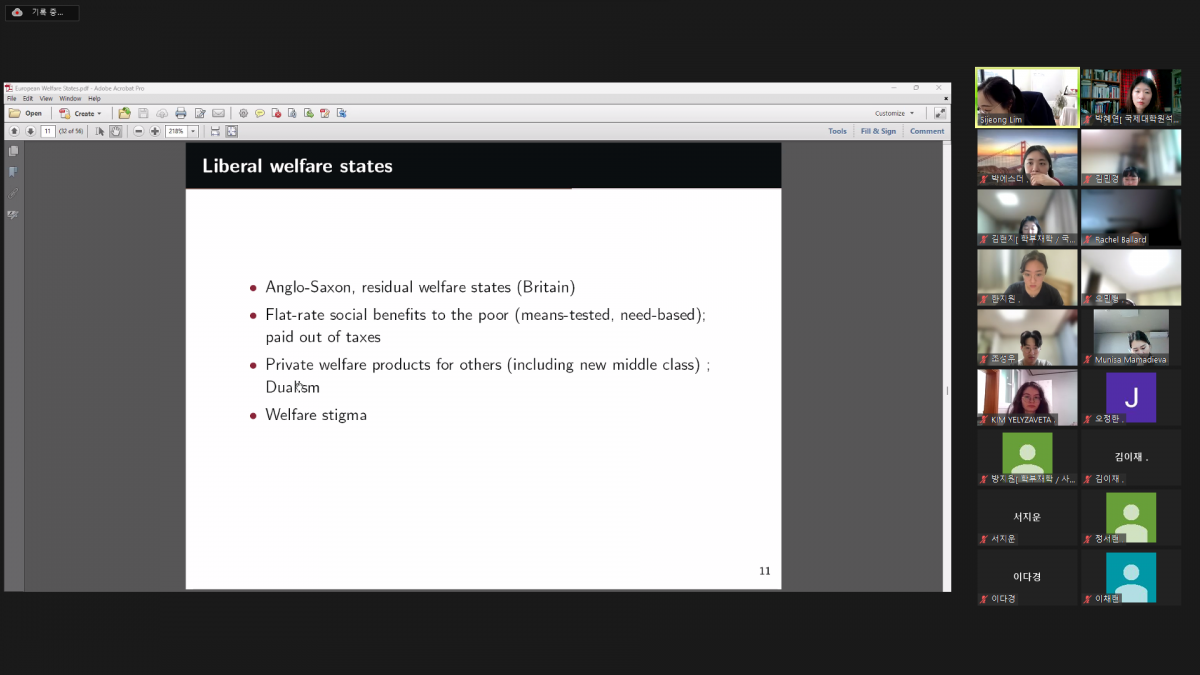Summer School 2023 <Contemporary Europe> Session 10
페이지 정보

본문
Professor Sijeong Lim from Korea University took care of the 10th session of the summer course. The topic of the day was European welfare state, which the professor provided the definition of welfare states, introduced some varieties and future challenges for the welfare. A welfare state is a government that provides for the basic needs of its citizens, such as healthcare, education, and social services. The goal of a welfare state is to ensure that all citizens have access to a minimum standard of living, regardless of their income or social status. The concept of a welfare state emerged in the early 20th century as a response to the social and economic challenges of industrialization and urbanization. The idea was that the government had a responsibility to protect its citizens from poverty, illness, and other social ills, and to promote their well-being and social mobility. There are three main explanations for the emergence of the welfare state: industrialization, democracy, and class mobilization. Then, the professor introduced the Esping-Anderson’s three clusters of welfare regimes that classified the various welfare states. The classic literature that divided liberal, conservative, and social democratic welfare state is still effective today, and students were invited to form a small group for the group discussion on which perspectives they lean on, and how do they evaluate the current state of South Korea.
첨부파일
-
Session 10_European Welfare States.pdf (2.4M)
29회 다운로드 | DATE : 2023-07-19 11:26:07
- 이전글Summer School 2023 <Contemporary Europe> Session 11 23.07.11
- 다음글Summer School 2023 <Contemporary Europe> Midterm Exam 23.07.11
댓글목록
등록된 댓글이 없습니다.









